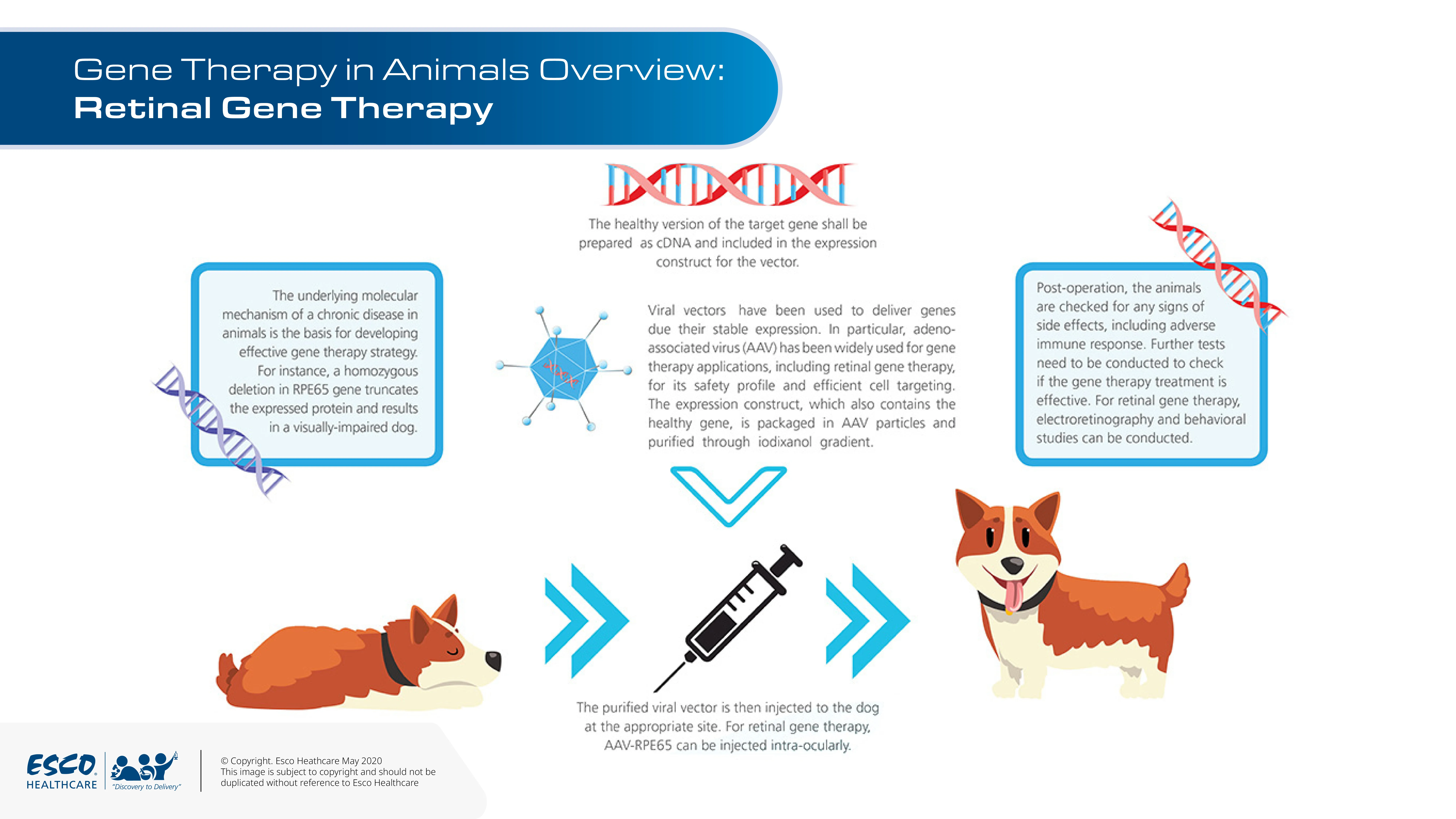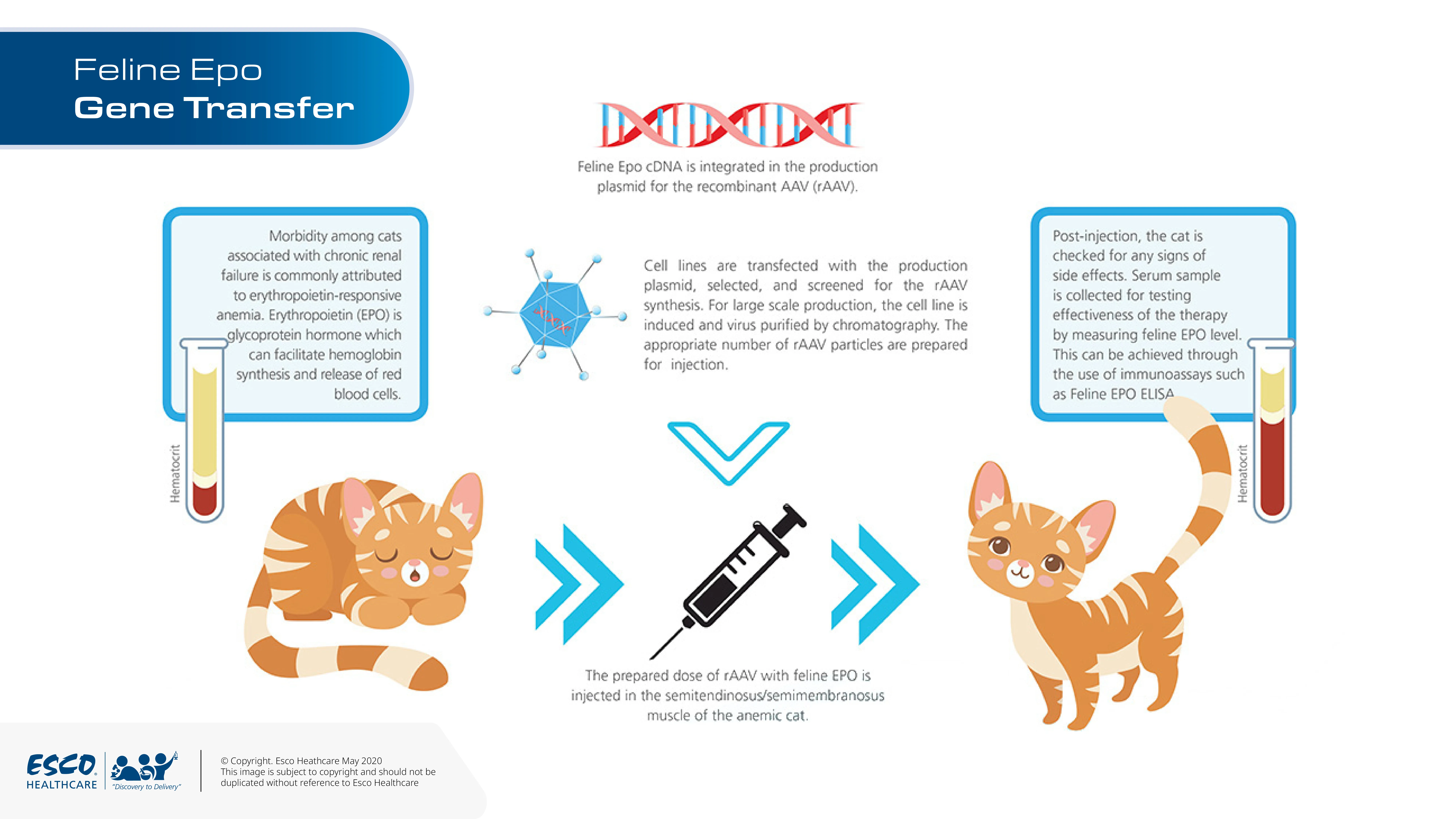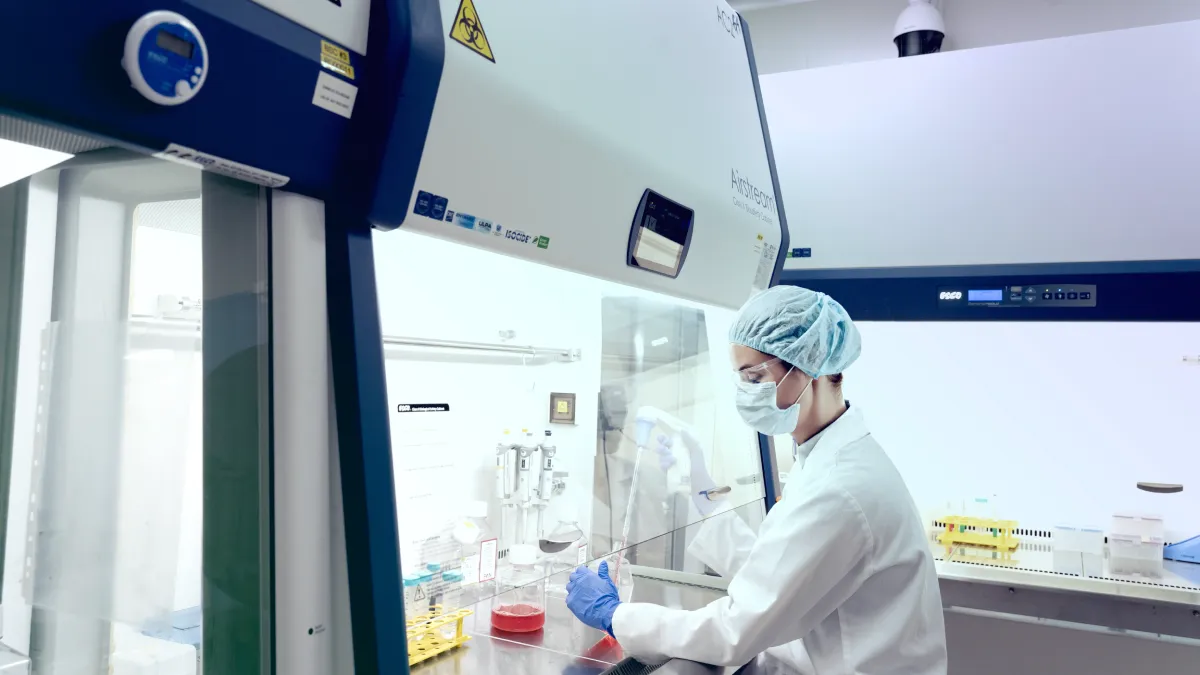Applications
Gene Therapy

Retinal Gene Therapy for Dogs
Improvements in genomic sequencing technologies reveal variations and mutations associated with human diseases. Understanding the animal genome shall also be the key to determine genes that are malfunctioning in particular animal diseases. Doing so would help in the development of diagnostic methods for screening the gene for any mutation. Also, gene therapy which has been successful in some cases in humans, would be technically applicable to our furry friends as well.
In a study by Acland et. al, recombinant adeno-associated virus containing wild-type version of the RPE65, a protein involved in retinoid metabolism, rescued the visual impairment of three dogs, carrying mutant RPE65 genes.

Feline Erythropoietin (EPO) gene transfer for Cats
In another study by Beall et. al, recombinant AAVs have been developed containing feline EPO gene. Erythropoietin has been used to treat cats having anemia associated with chronic renal failure. Human EPO has been effective successful with repetitive injections, however, dissipates through time. Thus, gene therapy has been employed to deliver EPO-expressing vectors to the anemic cat.
Large-scale production of adenoviruses containing functional genes can be performed efficiently through our bioreactors. Our TideXcell™ bioreactors provide low shear, foam or bubbling-free, and high aeration culture environment with improved cell growth, thereby increasing the viral titer of yields.





